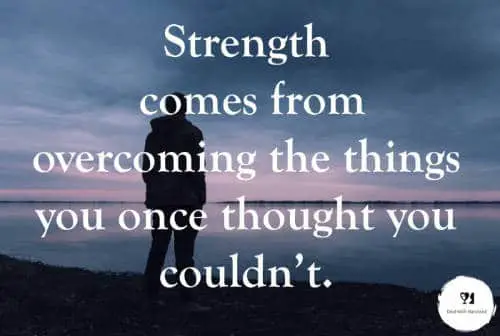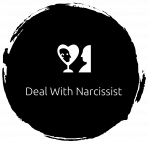Can a narcissist be a good dad? How does a narcissistic parent affect a child? In this article, I like to tell you about what I have learned from growing up with a narcissistic father.
First, I will tell a bit about my youth and the family dynamics and then I will tell about what I’ve learned!
A narcissistic father
As a young kid, I thought my father had some anger or self-control issues because he could sometimes be verbally aggressive for no reason and act like a child. I didn’t know someone could be narcissistic or a pathological liar.
When I was around 12, I discovered it was not just aggression or a lack of self-control.
He appeared to be an actor and nothing seemed to be real or sincere. He lied all the time and it seemed he really believed his own lies. It was quite fascinating and shocking at the same time.
He had another family on the side and we all silently knew. Still, nothing happened. We already had evidence of it but he could manipulate everything away as not being a problem. He could be very charming and deny anything without blinking. If you recognize this denial of truth, it might be good to learn about gaslighting.
All about ego and attention
It was all about his ego and the need for attention and there wasn’t any explanation why he would behave as he did. The only explanation for me was that he had no conscience or had no ability to feel emotions, which I thought was kind of sad for him. He showed lying patterns, manipulated, and at the age of 16 I could almost exactly predict his behaviour as I became an observer of his ways.
He seemed to be a genius in manipulation and it wasn’t visible to the outside world. Depending on the situation or what he wanted he would show specific behaviour in order to get it done. And it worked because he is an intelligent man and became very developed in his ‘game’.
Unhealthy family dynamics
It seemed like my father wanted to create small versions of him. He would be so proud and happy when we as children had the same hobbies or interests. He would mention it was clearly all because of him and his talents. Also, our intelligence as children was obviously because of his intelligence and wisdom.
My father did a lot of sports with us as kids and that was fun in the beginning. This was fun until that moment we became better than him at that sport. He wasn’t really able to handle this and would get very mad and frustrated about it. He would curse and afterward it would take a while before he could go back in ‘normal mode’. At a certain point, we let him win again because it wasn’t fun and the aggressive behaviour scared us. So pleasing him became important.
The attention in the whole family was directed at him and during the years we grew into very unhealthy dynamics. We became all very toned down characters and personally, I had a lot of fears and low self-esteem. I became great at acting invisible and avoiding conflicts. We all were complying with my fathers’ demands and I was just waiting to be free.
I learned from being with other families (from friends) that a family could be about kindness, love, and care as well. Luckily! When I realized the emptiness of our family, I wanted to become the opposite of my father. He became my example of what I don’t want, and I am grateful for that. So I guess I have to thank him for the person I have become.
Now, let me tell you about the things I learned from having a narcissistic father!
1. Taking care of me (self-worth) vs. taking care of others
Clearly, narcissists take excessive care of themselves without taking others into consideration. There is no balance between taking care of themselves and taking care of others.
The opposite of this behaviour is also possible, where people only take care of others and they forget about themselves. This can happen when someone has narcissists in their environment. If you always put others first, it would be good to think more about yourself. A lot of people are sweet empaths that think mainly about others. They might think about the expectations and thoughts of other people and be putting aside their own issues.
Similar to the narcissist’s way, this is not balanced and thus negatively influences your energy. I saw how my mother crossed her boundaries for my father and it’s not healthy. It makes no sense to not consider your own needs, as no normal person would want you to forget about yourself. It’s as they say: make sure you love yourself before you start to love someone else.
I learned from my parents dynamic that it’s important to care for yourself and show kindness to yourself. I aim for a balance between taking care of myself and taking care of others.
2. Manipulation detector
One thing I learned that is quite useful in for example the work environment is my manipulation detector. I learned to observe and analyze behaviour. I know and feel when someone is trying to manipulate others or me and when someone uses guilt or other emotional tricks to get certain behaviour in return. This can be a useful skill!
3. Principles of honesty and honest communication
Because my father could only lie and even seemed to believe his own lies, I appreciate honesty and honest communication! This means not cheating on someone in a relationship and just having some principles to live by. It helped me to decide I wanted to live by some core principles such as honesty and clarity, and I consciously chose how I wanted to be as a person. This gives me a feeling of control over who I am as a person.
4. Taking others into consideration
I learned to take the consequences of my actions onto others into consideration. I want to live my life with good intentions. It’s not possible to control what effects your actions will have on others, but having good intentions and thinking about others will probably have mostly positive effects!
I have seen the draining effect of narcissists and their self-centered actions on the environment and I don’t want that. We are all of equal worth and I still believe most people have a good heart.
5. The emptiness of stuff (materialistic)
My narcissistic father taught me about the emptiness of stuff. My father bought a lot of stuff for hobbies he would never even practice. He was buying stuff online all the time and had all the equipment needed for fishing, a boat, a motorcycle, tennis equipment, a postage stamp collection, and so forth. He almost never used all of this stuff though, because he was busy working or being with another family.
I didn’t understand this behaviour and learned to think about my spending and whether I will really use something that I want to buy. Therefore I learned to appreciate the function or the feeling material gives me, but I know the material in itself is empty. I love the idea of minimalism, where you really think about whether something makes you happy.
6. Emptiness of status and ego flattery
I saw a lot of ego flattery and publicly parading in my youth. My father always needed appreciation and confirmation and it seemed so insecure and empty. He was proud of all his achievements, talents, and intelligence. And he downgraded the same things when talking about someone else.
I think it’s fine to be proud of something, but also to recognize if you might be too dependent on status or flattery. When status or ego flattery becomes a need and you want to cling on to it, it’s not healthy anymore I think.
7. Narcissistic ego vs. ego in Buddhism
I have never seen an ego as large as my fathers’ ego. Everything in his mind is about him and he is controlled by his thirst for validation. This unconsciously has made me come into contact with Eastern philosophies such as Buddhism and Taoism. I learned a lot from these philosophies about not having an ego, the universe, meditating and living in the moment.
In a way, the principles of Eastern philosophies are opposite to the small world of a narcissist that only involves their ego. Meditation and mindfulness have been great in dealing with thoughts, emotions, stress, fears, and energy in general. It has inspired me and I am thankful for this.
8. Helping others and being kind for no reason
As a response to doing selfish things that can hurt other people for no reason, I think it’s great to help others and be kind for no reason. I believe our heart is kind and everyone is equal. Life is not always easy and helping others and showing kindness, even in a small way like smiling to a stranger, can mean the world to someone and make a difference! So I learned: spread love and kindness!
9. Setting boundaries and protecting your energy
I learned it’s important to set boundaries and protect your own energy. Although it’s a process and I know I can improve a lot more in this aspect, it’s clearly better than what it used to be. I’m more aware when someone is pushing my boundaries and can respond better to it. I learned to say ‘no’ way more often in order to protect myself from doing things I don’t want. I’m still learning, as I do still care much about the expectations of others.
Still learning
The only thing constant in life is change. Clearly, I am still learning and developing. I guess I am thankful in a way that my experiences have made me who I am today. I am curious about your story if you also have a narcissistic parent (or both parents) and I would love to hear about what you have possibly learned from it!
You can share this in the comment section or contact me by mail if you prefer that! If you would like to read more about the behaviour and possible signs of a narcissistic parent you could read this article.
If you have a brother or sister there is also a chance they become narcissistic as well. If you suspect this might be true, you could read my article about narcissistic siblings.

Did you like this article and is it helpful to you? I encourage you to share, like, follow, comment and possibly subscribe to my newsletter to receive monthly updates of my activities!


I hope you will respond back, but I’m sure you have too many people that comment.
This spoke to me in so many ways. I am a single mother of a 4 yr old son. As I read this, I literally felt as if my son had grown up and was writing this himself. My question to you is this writing is mostly past 12 years old. Do you remember anything before that? Feelings that you had, possibly? My son’s father does all of the things you’ve mentioned (except he doesn’t spend money, even on his own child). But he will yell at him and tell him he’s making them late when in reality if he had just started getting ready 20 minutes before, they wouldn’t be. But he makes everything the 4 yr old’s fault, not his. He also calls him names, not terrible ones, but ones that would hurt anyone’s self-esteem, like calling him slowpoke. He laughs at him when he makes mistakes. Anyway, do you remember any of this in your young life at all? And if so, I wonder what I can do now before this guy kills my son’s spirit?
Thank you for sharing your story Alison. I’m sorry to hear about your experience. I hope this article and sharing my experience can be helpful to you in some way. It’s very disturbing behaviour your son’s father shows.
I think my father’s behaviour was different when I had a young age, so I don’t share that experience your son has now. My father enjoyed it when I was young as he got the attention of the children and was worshipped as a father. He became more frustrated when I became older as he wasn’t the center of attention anymore. My earliest conscious experiences of my father’s anger/frustration were around the age of 8. It was unpredictable and I didn’t want to be around in situations he could be frustrated. I did, however, still see good things in him as well. I simply accepted this was his behaviour because I didn’t know any better.
Clearly, the experience was painful and affected me and I developed a lot of fears and self-doubts. It can be hard to understand what happens as a child and a child can think it’s their fault.
I don’t know if you can protect your son from everything but I do believe you can counterbalance the effects of your son’s father. I’m very thankful I witnessed the other side because of my mother and her empathy. It saved my spirit and showed me an example of kindness and unconditional love.
In my experience, it’s thus very important your son sees/experiences the other side: you, your empathy and your loving energy. It means you will be the one to show him unconditional love, compassion, care, and kindness. I would say what you can do now is to keep/have a strong connection with your son and be yourself. You can trust yourself in showing that.
Time will tell, but your son could show some signals or have questions about his father at a certain time. You could get questions such as ‘does my daddy like me?’. He will notice his father shows different behaviour than you and others and start wondering about it. These might be times you can listen with empathy and ensure him it’s not his fault. Did you have such experiences already?
I wish you strength and I hope this answer might be useful in some way Alison. Take care!
Killian
Thank you for writing this beautiful and inspiring post. I grew up with a narcissistic father too. Very similar to your situation. My mother was kind and empathetic but weak with her boundaries. Hence she suffered and could not fully protect my brother and me. We grew up with poor sense of self worth and lots of self doubt. Im in therapy now and healing (in my early 30s now and married). It’s taken so many years to get over this trauma and pain. I’ve cut off ties with my father and don’t engage with him in any way. It’s so much better this way. I found your post very relatable. It also gives me hope. Glad I stumbled across your article somehow. It feels really nice to know that others who have been through similar situations have chosen to break the abuse cycle and gone on to inspire many. Thank you for sharing your story!